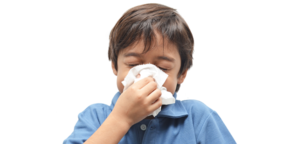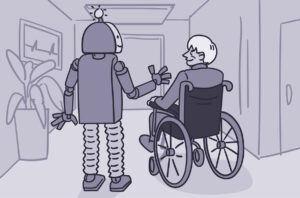10 Steps for Better Women’s Health
The health issues that women face are different from those that men have. For one, women are more likely to have conditions such as migraines, urinary tract infections, and bone density loss. Most of the time, women will lose bone density faster as they age than men. Loss of bones often leads to osteoporosis. Thus, we at Frontline ER would like to inform you about the steps you can take to protect your health.
Start Using Flats Instead Of Heels
Heels are not suitable for your feet. Wearing heels for years will result is the tightening and shortening of the Achilles’ tendon. When you walk in flat shoes, your foot will go back to its natural form. However, ensure that the flat foot you pick has strong arch support.
If you are already using heels, move from heels to flats gradually. Wear lower heels and progressively move to flat shoes. The constant shifting will ensure the Achilles’ tendon will have time to relax and stretch out to its natural form. Heels can also lead to twisted ankles, which is something we often treat at Frontline ER.
Do Not Cut Out Food Groups
If you have decided to go on a diet, do not cut down on any food groups. Whether they are fats or carbohydrates, you may not cut them out. You can include lean proteins, calcium, and some other nutritional foods to assist your body to function in a better manner. All that is needed is to ensure that you are in control of the portions and that you do not go overboard. It is especially so with the unhealthy foods. Moderation is the key to good health.
Do Not Overindulge In Calcium
Since women have a high risk of losing bone mass, it is quite common for them to overindulge in calcium. If you take too much calcium, it will increase the risk of kidney stones. These kidney stones can be so painful that they force you to rush to Frontline ER. Besides that, they could place you at high risk of heart disease. If you are below 50 years, aim to get 1000 milligrams a day. Beyond 50 years, a woman should strive for 12000 milligrams a day in the diet.
Do Cardio
Women need to mix cardio with weight-bearing exercises about three times a week. It will help to prevent diabetes, heart disease, cancer, and other illnesses. Such activities will usually promote a good self-image such as a better posture which is quite essential to the mental health of a woman.
Start Thinking About Fertility
While most women will not face problems as they try to get pregnant in their late 30s and the early 40s, the productivity of a woman could decline after 32. Thus, if you want to have kids during this age, it might be wise to discuss options with your doctor. For instance, you might consider freezing your eggs for later on.
Consider Using Birth Control
Birth control often receives a bad rap. However, it can help to keep you from getting pregnant before you are ready to do it. Raising a child is costly, and it is essential to ensure you are in the best position to do it. Additionally, studies have shown that birth control can help to regulate the cycle and lower the risk of ovarian and uterine cancer.
Ensure You Go For Your Annual Doctor’s Appointments
Ensure that once every three years, you go for a pap test that checks for cervical cancer if you are above 21 years. If you 30-65 years, you should get the pap test and the HPV test once every five years.
If you are above that, you may stop testing unless your doctor says otherwise. If you are active sexually and you are at high risk of STD, get tested for gonorrhea, syphilis, and chlamydia once a year. You should also take an HIV test occasionally and more frequently if you are at risk. Never avoid going for the doctor’s checkup once a year. This way, you can stay out of Frontline ER.
Have Good Sex
Sex could help to keep you out of Frontline ER. It is quite helpful in lowering the risk of chronic disease. It reduces stress and helps you function better socially, but only if you are enjoying it. If you often experience pain and dryness, you might need to speak to the doctor to find a solution.
Get Enough Sleep
The sleep needs of everyone differ. However, if you have problems trying to get out of bed, you are tired during the day, or you find it hard to concentrate, you might be sleep deprived. Some studies suggest this can place you at high risk of heart disease and cause psychological issues.
Go For Genetic Testing
Doctors can now screen people to ensure they are not at risk of breast cancer or some other chronic diseases.




